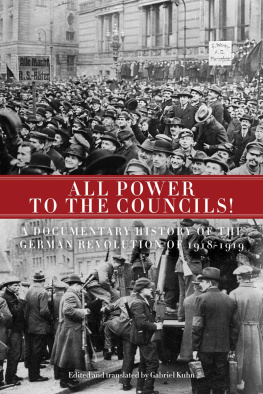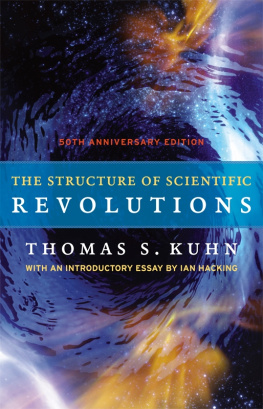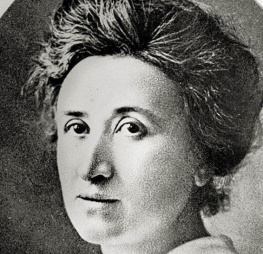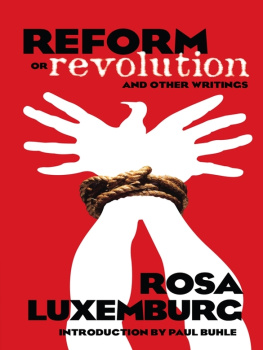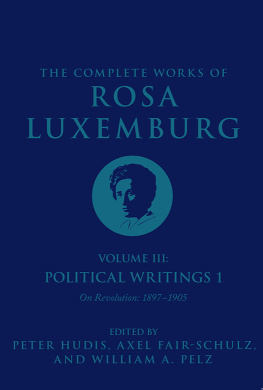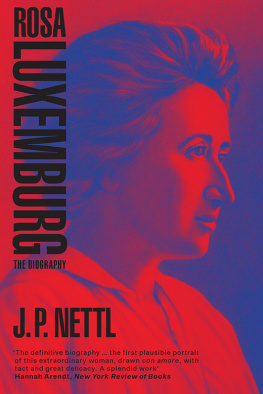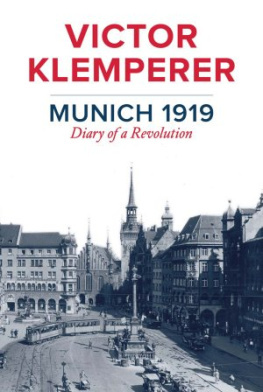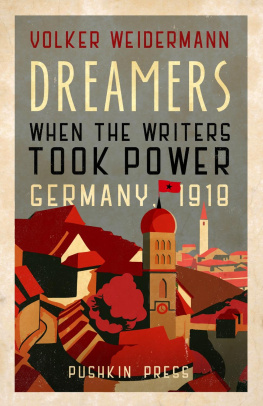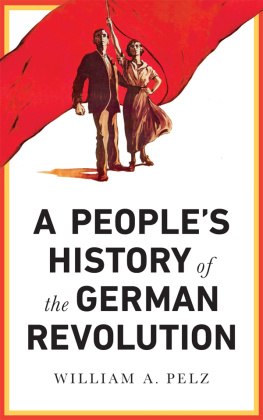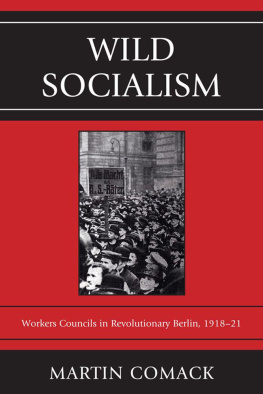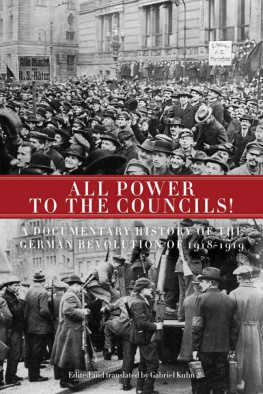PRAISE FOR
All Power to the Councils!
A Documentary History of the
German Revolution of 1918-1919
Gabriel Kuhns excellent volume illuminates a profound global revolutionary moment, in which brilliant ideas and debates lit the sky, and from which emerged the likes of Ret Marut, a.k.a. B. Traven, perhaps historys greatest proletarian novelist. Herein lie the roots of The Treasure of the Sierra Madre and much else besides.
Marcus Rediker, author of Villains of all Nations and The Slave Ship
This remarkable collection, skillfully edited by Gabriel Kuhn, brings to life that most pivotal of revolutions, crackling with the acrid odor of street fighting, insurgent hopes, and ultimately defeat. Had it triumphed, millions would have been spared the inferno of fascism; its failure ushered in counterrevolution far beyond its borders. In an era brimming with anticapitalist aspirations, these pages ring with that still unmet revolutionary promise: I was, I am, I shall be.
Sasha Lilley, author of Capital and Its Discontents and co-author of Catastrophism
Drawing on newly uncovered material through pioneering archival historical research, Gabriel Kuhns powerful book on the German workers councils movement is essential reading to understanding the way forward for democratic worker control today. All Power to the Councils! A Documentary History of the German Revolution of 1918-1919 confers important lessons that will avert the setbacks of the past while providing penetrating and invaluable historical documentation crucial for anticipating the inevitable dangers in the struggle for building working class democracy.
Immanuel Ness, Graduate Center for Worker Education, Brooklyn College
An indispensable resource on a world-historic event. Gabriel Kuhns remarkable, richly annotated documentary collection gathers eyewitness accounts and revolutionary voices from Germanys 1918-1919 worker-soldier-council revolution. Whereas the Independent SPD and the Spartakusbund/KPD dominate most accounts, up to the point of exaggeration, Kuhns balanced work at last recovers the vital, central contributions and alternative perspectives of other mass proletarian currents: the anarchists and syndicalists of Bavaria, the Ruhr, and elsewhere, including Landauer and Mhsam, the Revolutionary Stewards, mutineers at Wilhelmshaven and Kiel, and the Ruhr Red Army.
Lucien van der Walt, Rhodes University, South Africa

All Power to the Councils! A Documentary History of the German Revolution of 1918-1919
Edited and translated by Gabriel Kuhn
ISBN: 978-1-60486-111-2
LCCN: 2011927962
This edition copyright 2012 PM Press
All Rights Reserved
PM Press
PO Box 23912
Oakland, CA 94623
www.pmpress.org
Cover by John Yates/stealworks.com
Layout based on design by Daniel Meltzer
10 9 8 7 6 5 4 3 2 1
Printed in the USA on recycled paper, by the Employee Owners of Thomson-Shore in Dexter, Michigan.
www.thomsonshore.com
Published in the EU by The Merlin Press Ltd.
6 Crane Street Chambers, Crane Street, Pontypool NP4 6ND, Wales
www.merlinpress.co.uk
ISBN: 978-0-85036-649-5
TABLE OF CONTENTS
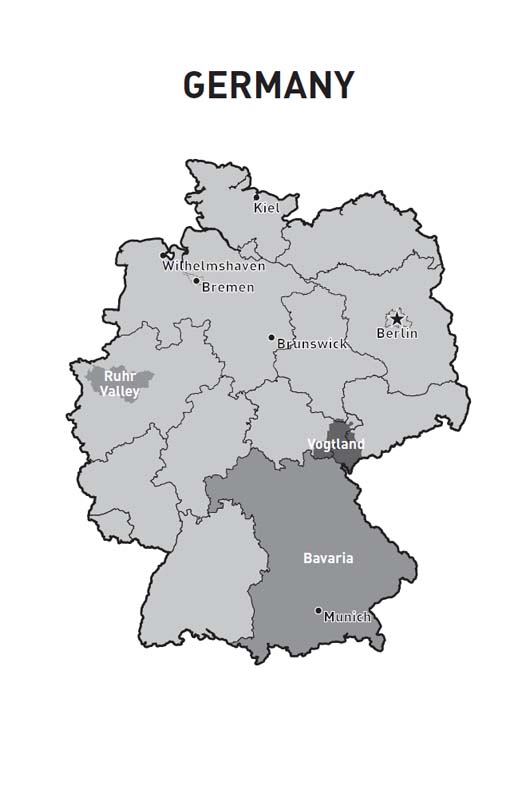

I NTRODUCTION
G ABRIEL K UHN
T HE G ERMAN R EVOLUTION OF 1918-1919 IS A CURIOUS phenomenon, not least because the jury is still out on whether it really was a revolution, or, more precisely, whether the revolution was brought to its end. To this day, social democrats celebrate the end of World War I as Germanys transition from Kaiserreich to republic. Radical socialists, on the other hand, bemoan the betrayal of the revolutions proletarian ideals and of the communists, radical labor organizers, and anarchists who fell victim to the social democrats collaboration with reactionary military forces that paved the way to the Weimar Republic.
The Weimar Republic, named after the eastern German town where Germanys republican constitution was drafted, was an attempt in democratic parliamentarism that never functioned, instead causing the rise of fascist organizations in the 1920s, among which the National Socialists emerged as the strongest force, eventually seizing power in 1933. This propelled Germany, and soon the rest of the world, into a disaster of unspeakable dimensions.
One of the most compelling questions with respect to the German Revolution is, What would have happened if? Would the world have been spared National Socialism if a socialist republic had been established? Would socialist republics in both Russia and Germany have triggered many more socialist revolutions, at least in Europe? Or would two competing socialist systems have been established? Could the entire history of socialism have been different? Could the anarchist influence have created a less bureaucratic and centralist socialist model?
On the one hand, there is little point in pondering these questions. History cannot be undone. On the other hand, there is a lot to learn from historys course and from the consequences of what was, and was not, done. It helps strategizing for the future. This is one of the hopes connected to this publication.
All Power to the Councils! is the first English-language history of the German Revolution based on original documents by active participants representing all of the radical factions involved. There exist a few general histories of the German Revolution in English, some of which are very good and highly recommendedsee the Bibliography for details. However, most of these histories are written from a strongly communist perspective and focus almost exclusively on the role of Karl Liebknecht, Rosa Luxemburg, and the Spartacus League. While the Spartacists played an important role in the events, their politics were not uncontested in the radical left, and in some sections of the proletariat as well as in certain regions, unionist, syndicalist, and anarchist influences were equally important. Furthermore, while historians have so far summarized their research in monographs, which make for very useful introductions and overviews, most of the eyewitness reports of the German revolutionaries have remained untranslated. In this sense, the volume presented here hopes to contribute to the ongoing study of the German Revolution by providing firsthand accounts of active revolutionaries, compiled in a way that chronologically traces the revolutionary developments. Using the introductory glossary and timeline, the background information to the individual chapters and texts, and the annotations, even the reader unfamiliar with the broad strokes of the German Revolutions history should not lose sight of the revolutions narrative, being able to also read this book as a general history of the events. At the same time, the English readers already familiar with the history shall find new texts and therefore perspectives and analyses that should deepen their understanding of the events and inspire their own perspectives and analyses.
The main radical factions during the revolution were:
- The communists, first organized in the Spartakusbund [Spartacus League] and the Internationale Kommunisten Deutschlands [International Communists of Germany] (IKD), then in the
Next page
